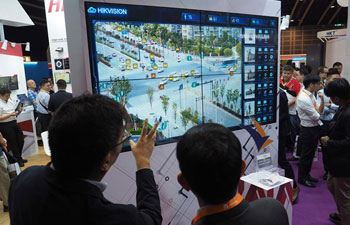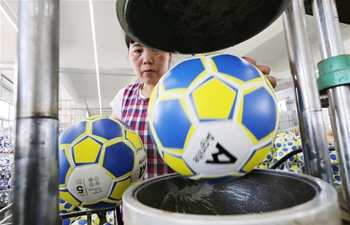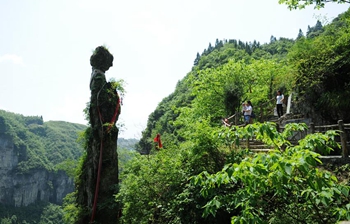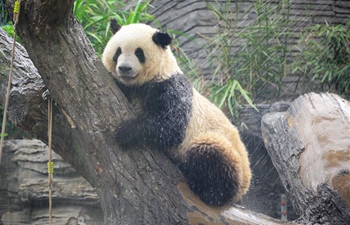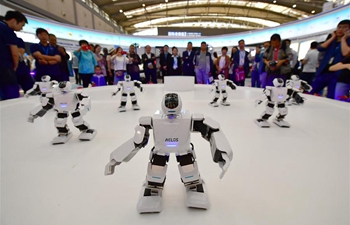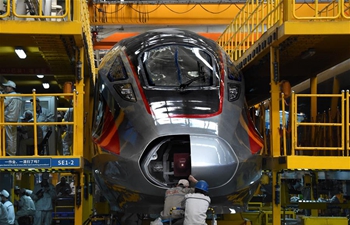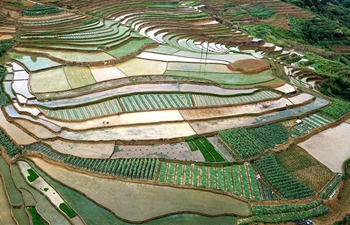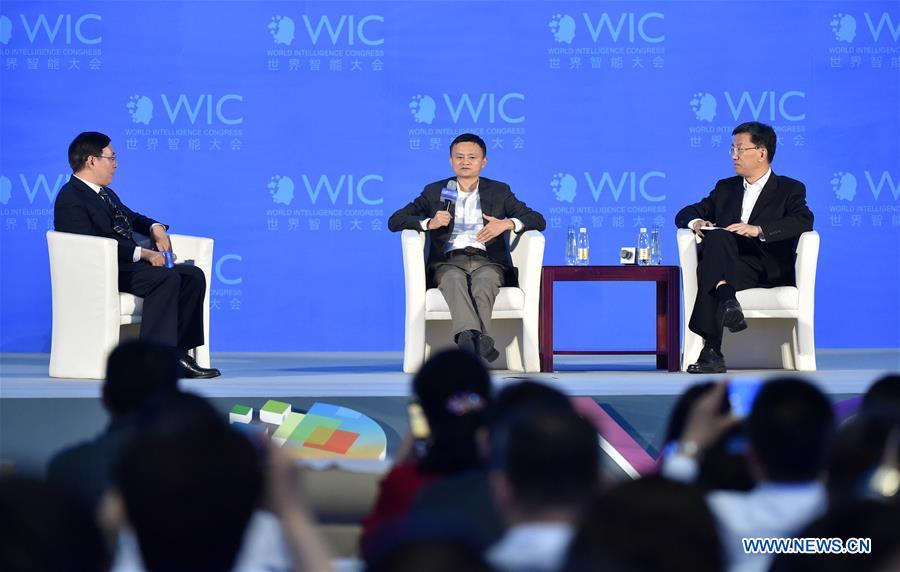
Photo taken on May 16, 2018 shows a high-level dialogue during the 2nd World Intelligence Congress in Tianjin, north China. Over 1,800 artificial intelligence experts from 17 countries and regions participated in the congress that kicked off on Wednesday. (Xinhua/Li Ran)
TIANJIN, May 16 (Xinhua) -- Researchers, entrepreneurs, and policymakers gathered at the second World Intelligence Congress in north China's Tianjin Municipality on Wednesday to explore the field of artificial intelligence (AI).
The three-day conference, which kicked off on Wednesday, focuses on new development and policies in AI and gathers participants including tech firms like Baidu, Alibaba, JD.com, Microsoft, Huawei, and iFlytek.
The congress includes forums, exhibitions, and competitions for unmanned cars and drones. The Tianjin municipal government, National Development and Reform Commission (NDRC), and Ministry of Science and Technology are among the organizers of the events.
Lin Nianxiu, deputy director of NDRC, said AI is the most dynamic technological field in the world and the Chinese government highly values the development of AI. He said China should seize opportunities to raise innovation capabilities in deep learning, smart algorithms and chips, modernize industry with AI technology, and expand opening-up and cooperation with overseas partners.
Wan Gang, chairman of China Association for Science and Technology, said at the opening ceremony that Chinese companies are world leaders in image recognition, voice translation, and behavioral analysis.
Remarkable achievements have been made in intelligent robotics, unmanned shops, machine translation, shared and self-driving vehicles. There are wide applications in the fields of city planning, smart transport, social governance, health, agriculture, and national security, he said.
"China has advantages in the speed of AI development and its wide applications, but our weak points are in the depth of basic research and originality," he said.
He called for strengthening basic research and more input in developing core technology.
Last July, the State Council, China's cabinet, issued a plan on new generation AI. The plan said the AI industry should be a major new growth engine and have improved people's lives by 2020. It set the target of China becoming a major center and world leader for AI innovation by 2030.




